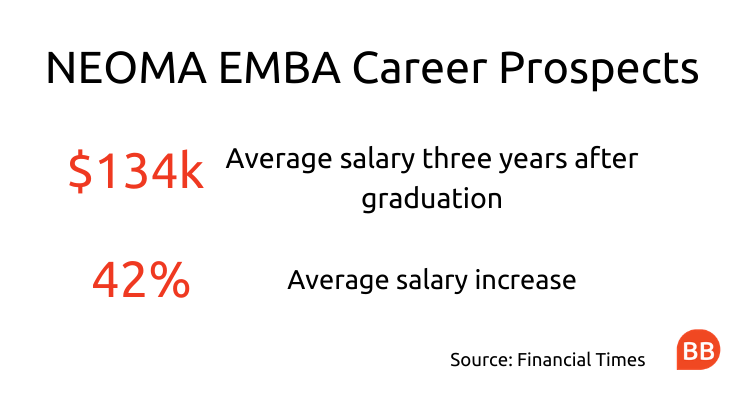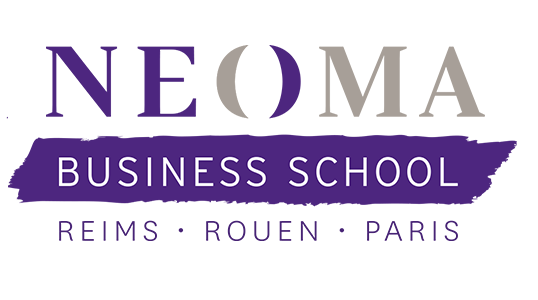It’s a significant investment, but the upside is that salary prospects for EMBA graduates more than make up for it.
To understand the return on investment for EMBA programs, typical graduate salaries and employment prospects provide a good measure. Read on to find out what could you earn from an Executive MBA.
Executive MBA Salary
The average salaries (calculated three years after graduation) for graduates of the Financial Times top 100 EMBA programs range between $91k and $531k, averaging out at $223k. This also represents an average increase in salary (the average increase in salary calculated before and three years after the program) of 58%.
EMBA students are also likely to receive a pay raise during and directly after completing the program. According to the Executive MBA Council (EMBAC), who completed a survey of the latest EMBA graduates mostly in the United States, the average salary including bonuses for EMBAs increased 13.5% directly after graduating.
Average salaries for US programs come in frequently higher than the global average, but European schools are also reporting high salaries for EMBA grads.
After the Global Executive MBA at NEOMA Business School for example, graduates earn on average $134,000 following the program according to the FT. This is an average growth in salary of 42%.
The EMBA at NEOMA costs just $42,000, far less than many US EMBA programs and cheaper than most MBAs, so the program represents a strong return on investment.

The industries and employment options
Executive MBA salaries are among the highest of any business school program. Aimed at professionals with already impressive careers, the qualification can enable yet higher earning potential.
According to EMBAC, 40% of students receive a promotion during the program itself. 53% reported that they had taken on more responsibility in their career whilst on the program.
The return on investment from EMBA programs goes beyond the financial perks too. Personal development and networking are cornerstones of the program, and can lead to fruitful relationships with alumni, and better understanding of your career aims.
EMBA candidates have typically been working within their current industry a decade or more. An EMBA can take careers to the highest level, whether that’s in the boardroom or launching a new business.
The skills for becoming an improved, future-proofed leader are integral to most EMBA programs. At NEOMA, there are modules for students on how to manage digital disruption, positive leadership, and commitment-driven leadership.
EMBA vs MBA
The EMBA is a part-time qualification, allowing students to continue with their career simultaneously. Compared with their MBA counterparts, it gives EMBA students the opportunities to continue earning as they study.
At NEOMA, the EMBA has been tailored specifically for this flexibility. Students can choose between three different program formats; four days per month over 15 months; eight days per month over 12 months; or students can choose to study two months full-time upfront before fitting the rest around their working schedule.
The typical EMBA candidate will also have more management experience than MBA students. At NEOMA, 38% of the classroom have 16-to-20 years professional experience, while 31% have over 20 years’ experience.
This means in an EMBA class, you’ll be networking with experienced leaders, each of whom will offer a wealth of knowledge. That's just one of the many things you'll gain from Executive MBA programs.
Download the BusinessBecause Executive MBA Insights: 10 Leadership Challenges For 2022
Discover the 10 leadership challenges facing business leaders in 2022, and find out how you can overcome them with an Executive MBA
The main image in this article is credited to Salimx1 and used under this license.









